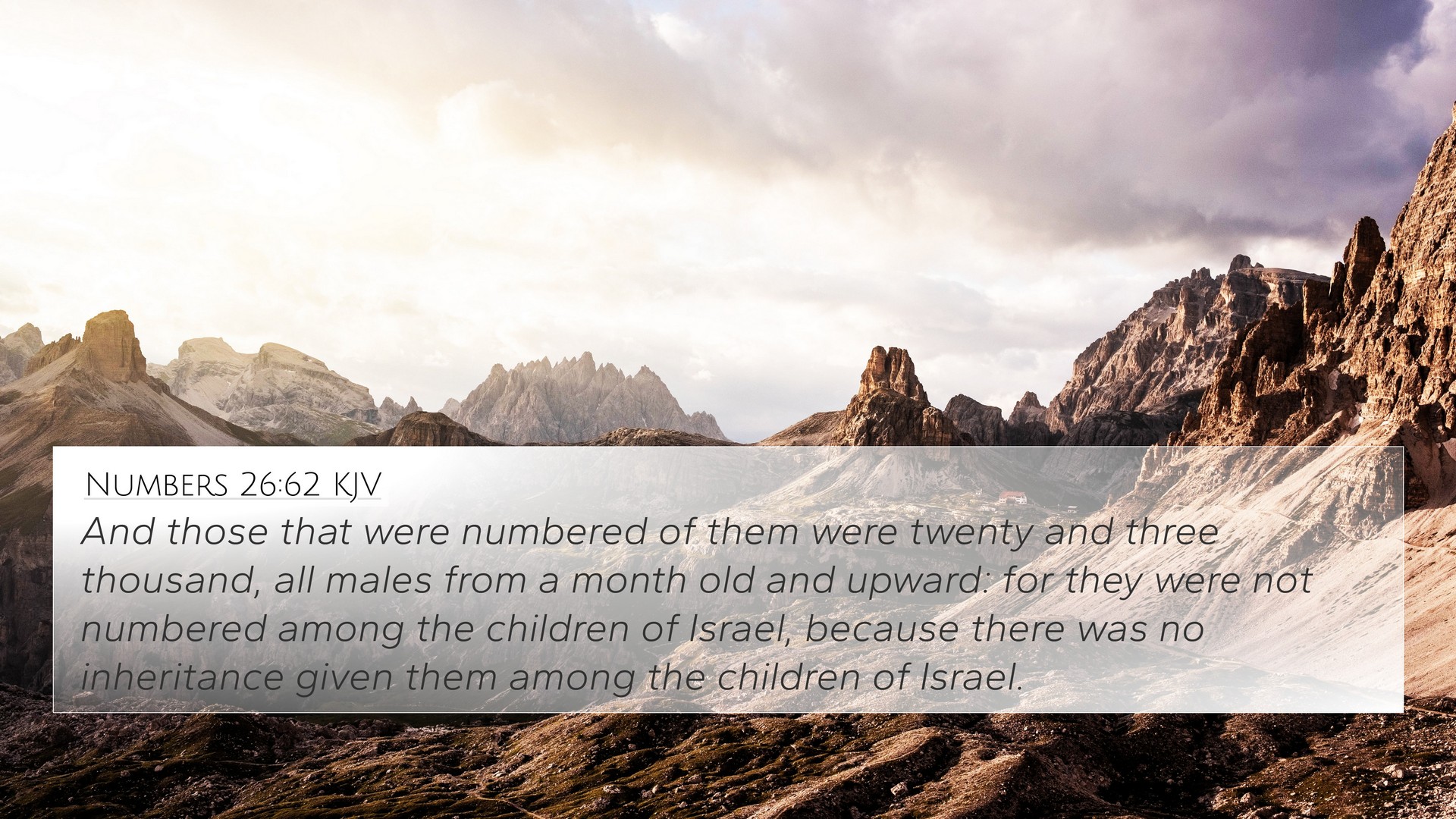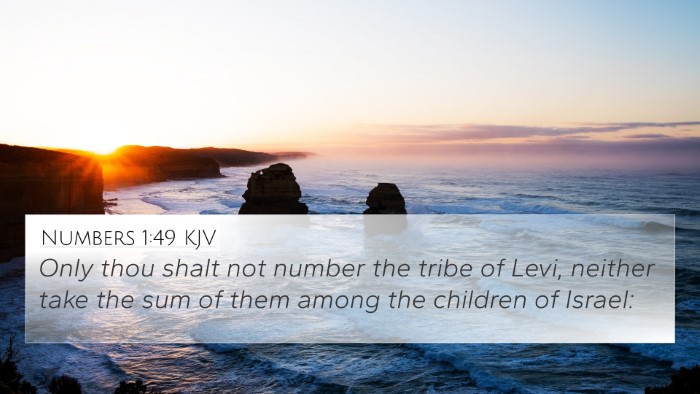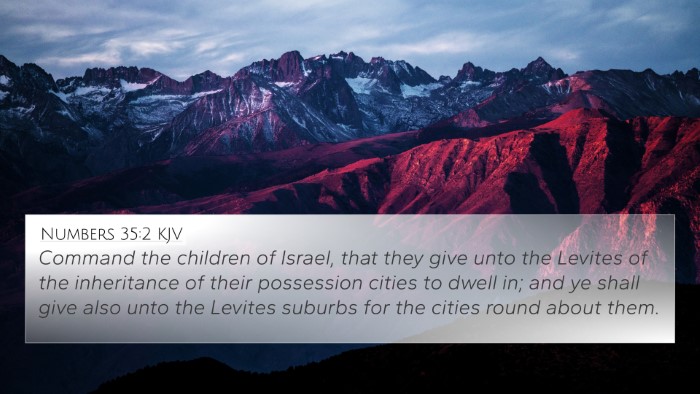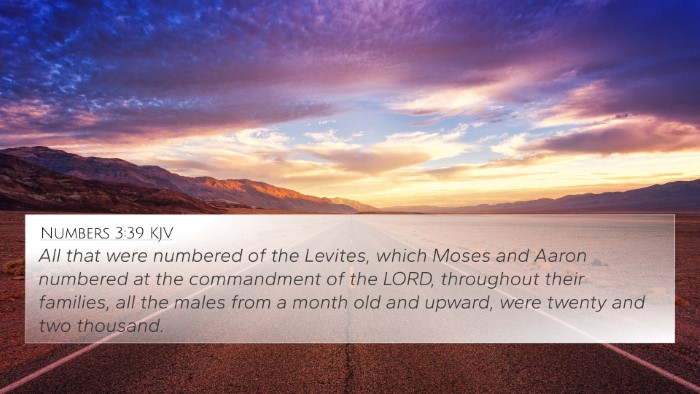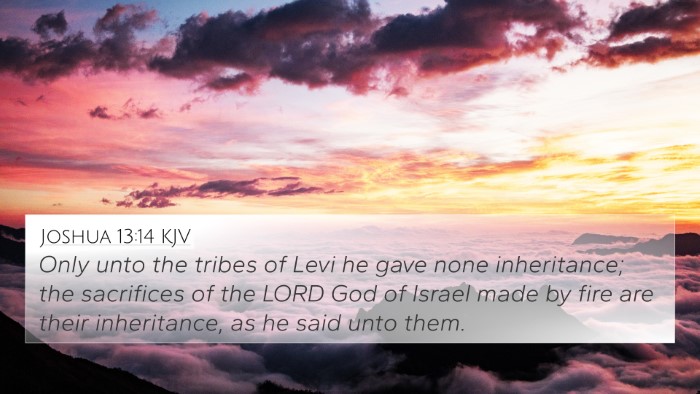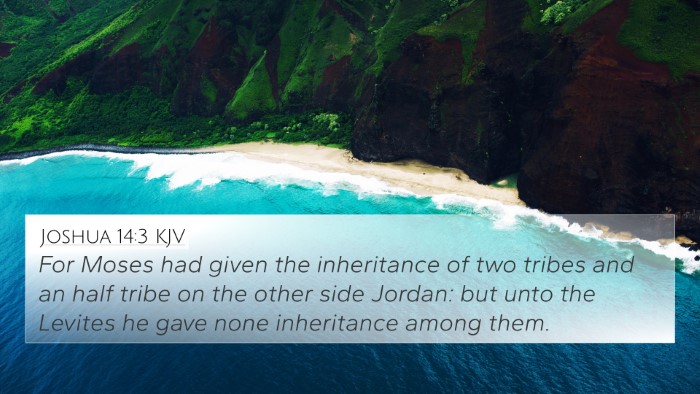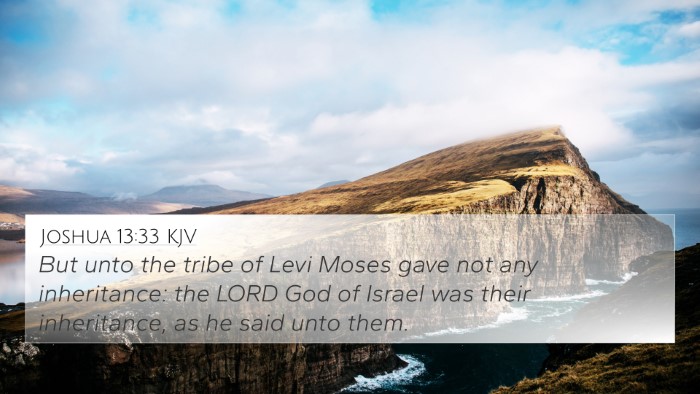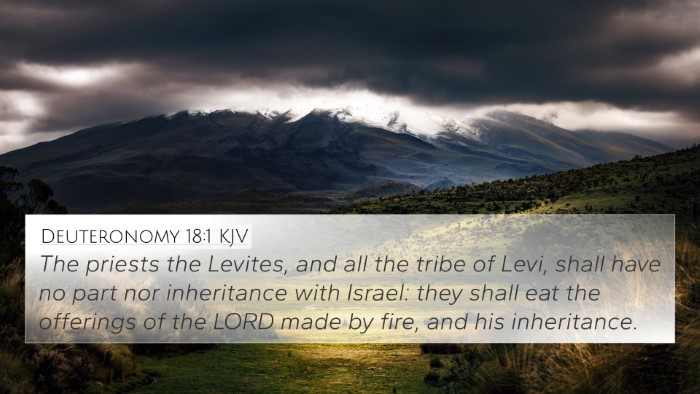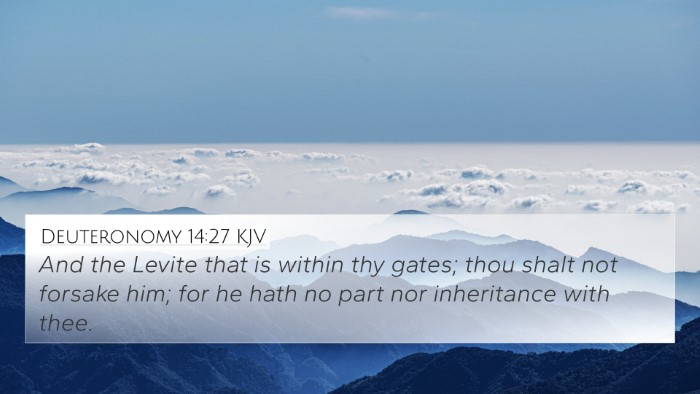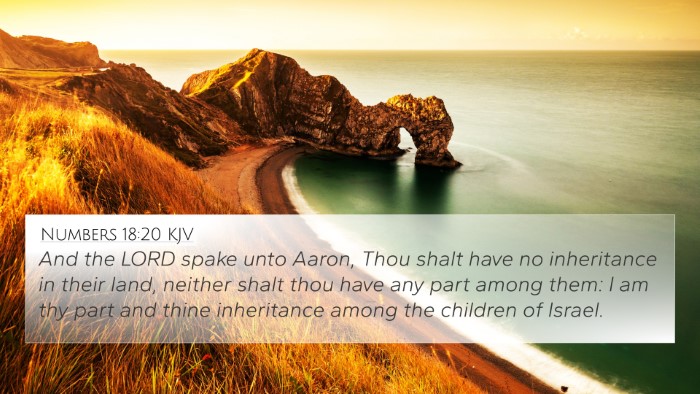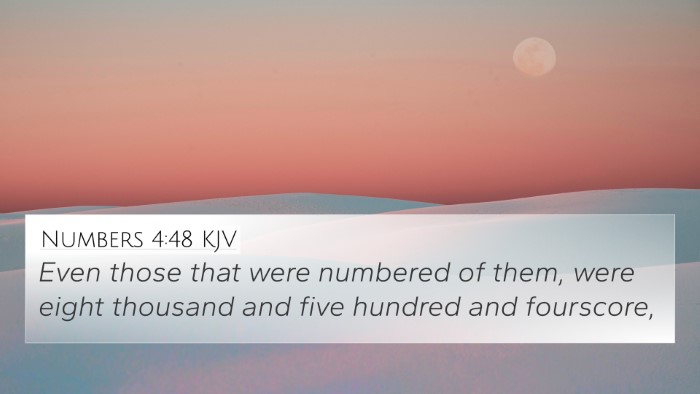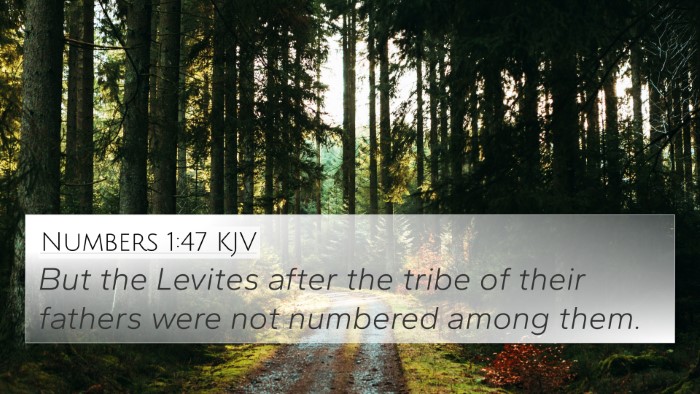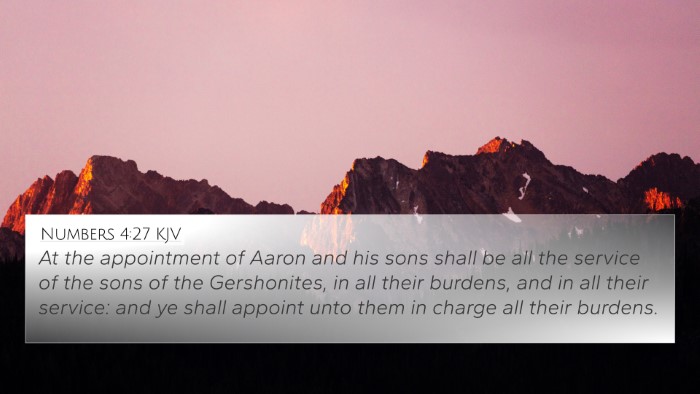Bible Verse Meaning: Numbers 26:62
Context Overview
Numbers 26:62 states: "And those that were numbered of them were twenty and three thousand, all males from a month old and upward: for they were not numbered among the children of Israel, because there was no inheritance given them among the children of Israel."
This verse reflects a significant moment in the history of the Israelites, discussing the census of the Levites and the distinctions made in their inheritance.
Interpretation Insights
-
Matthew Henry's Commentary
Matthew Henry emphasizes the importance of order and structure within Israelite society. He notes that the counting of the Levites shows how crucial their role was, even though they did not receive a land inheritance. This indicates that the spiritual inheritance of the Levites was esteemed even higher than a physical portion of land.
-
Albert Barnes' Notes
Albert Barnes highlights that the Levites were set apart for God's service and were counted differently from the rest of the tribes. He discusses how their commitment to God’s work underscored their unique role and suggests that they served God in a way that required their separation, thus not being included in land distributions. This separation signifies a spiritual lineage rather than merely a tribal one.
-
Adam Clarke's Commentary
Adam Clarke adds that the number of Levite males was significant because it demonstrated God’s provision and care for the priestly tribe. He interprets the mention of the age of one month and older as indicating that all males capable of being dedicated to the service of God were included in this count.
Thematic Connections
In understanding this verse, there are several key themes presented, such as:
- Division of Labor: The Levites' unique role reflects God’s structure for spiritual leadership.
- Separation for Service: The distinction in inheritance highlights how some are called to a different purpose in God’s plan.
- Divine Provision: The count serves as reassurance of God’s covenant with the Levites, ensuring their need for sustenance and support in their roles as priests.
Cross References
This verse connects with several others in the Bible which deepen its understanding:
- Exodus 32:29 - The Levites chose to follow God, establishing their devotion.
- Numbers 3:11-13 - A clear designation of the Levites’ role as God's chosen servants.
- Numbers 18:2-4 - Outlining the duties of the Levites and their provision from God.
- Joshua 13:14 - Confirmation of the Levites' inheritance being the Lord Himself rather than land.
- 1 Peter 2:9 - The New Testament reflects the priesthood of believers, linking to the Levites’ role as mediators.
- Hebrews 7:14 - Discusses Jesus coming from the tribe of Judah, unlike the Levitical priesthood.
- Malachi 2:4-7 - Highlights the integrity and role of the Levitical priests in instructing the people.
Understanding the Separation
The absence of land inheritance for the Levites is significant and serves to illustrate the broader theme of spiritual rather than physical inheritance throughout Scripture. The focused service of the Levites indicates a divine position that every believer is invited into today, as suggested in the New Testament.
Conclusion
Numbers 26:62 intricately connects the themes of service, dedication, and spiritual inheritance. These insights from public domain commentaries enhance our comprehension of the Levites’ crucial place in God’s covenant community, reinforcing that their loyalty and service positioned them uniquely among the tribes of Israel.
